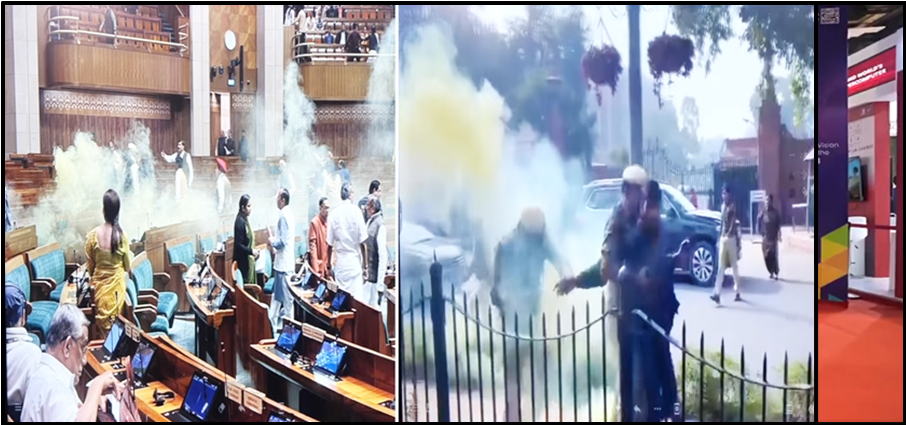Parliament security breach incident
News
- In relation to the Parliament security breach incident, the Delhi Police Special Cell has filed a case under the Unlawful Activities (Prevention) Act (UAPA).
- A high-level investigation into the situation is reportedly ongoing, according to sources. In order to provide Delhi Police with the specifics, Haryana police is also compiling information about the accused.
- NOTE:
- This breach coincided with the anniversary of the 2001 Parliament terror attack.
- The Lok Sabha was in session on this day in 2001 when a five-person suicide squad made up of terrorists from Lashkar-e-Taiba and Jaish-e-Mohammad attacked Parliament House and regrettably, in the process of preventing terrorists from entering Parliament, 11 lives of security personnel and civilians were lost.
| UAPA
Background: ● The UAPA is an advancement from the TADA (Terrorist and Disruptive Activities (Prevention) Act), which lapsed in 1995, and the repeal of the Prevention of Terrorism Act (POTA) in 2004. ● Originally enacted in 1967 to address secessionist movements and anti-national activities. ● Subsequent amendments were introduced in 2004, 2008, and 2013. ● Untill 2004 unlawful activities were limited to actions related to secession & cession of territory. ● 2004 Amendment added “Terrorist act” as an offence under the act. ● Amended most recently in 2019, introducing provisions on terrorist financing, cyber-terrorism, individual designation, and property seizure. What is an Unlawful Activity ? Unlawful activity’ refers to any conduct, whether undertaken by an individual or a group, expressed through actions, spoken or written words, or conveyed through signs or visible representations such that those actions supports or incitie cession or secession of any part of India, or challenges its sovereignty and territorial integrity. Salient Features of the UAPA Act : ● Empowers the NIA to investigate and prosecute UAPA cases nationwide. ● Empowers the central government to declare an activity as unlawful through an Official Gazette. ● Applies to both Indian and foreign nationals, regardless of whether the act occurs within or outside India. ● Provides death penalty and life imprisonment as the highest punishments for terrorist acts. ● Detention and Bail Provisions: Allows detention without charge or trial for up to 180 days. Denies bail unless the court is convinced of the accused’s innocence. ● Definition of Terrorism: Defines terrorism as acts causing or intending to cause death, injury, property damage, or threats to India’s unity, security, or economic stability. ● Designation of terrorist: ○ Union government may proclaim or designate an organization as a terrorist entity based on specific criteria. ○ Individuals can also be designated as terrorists on similar grounds. ● Property Seizure Approval: Investigating officers need prior approval from the Director-General of Police for property seizures linked to terrorism. NIA officers require approval from the Director-General of NIA for such seizures. ● Investigation Officers’ Ranks: Permits officers of Deputy Superintendent or above to investigate cases. Empowers NIA officers, Inspector rank or above, to conduct investigations. |




